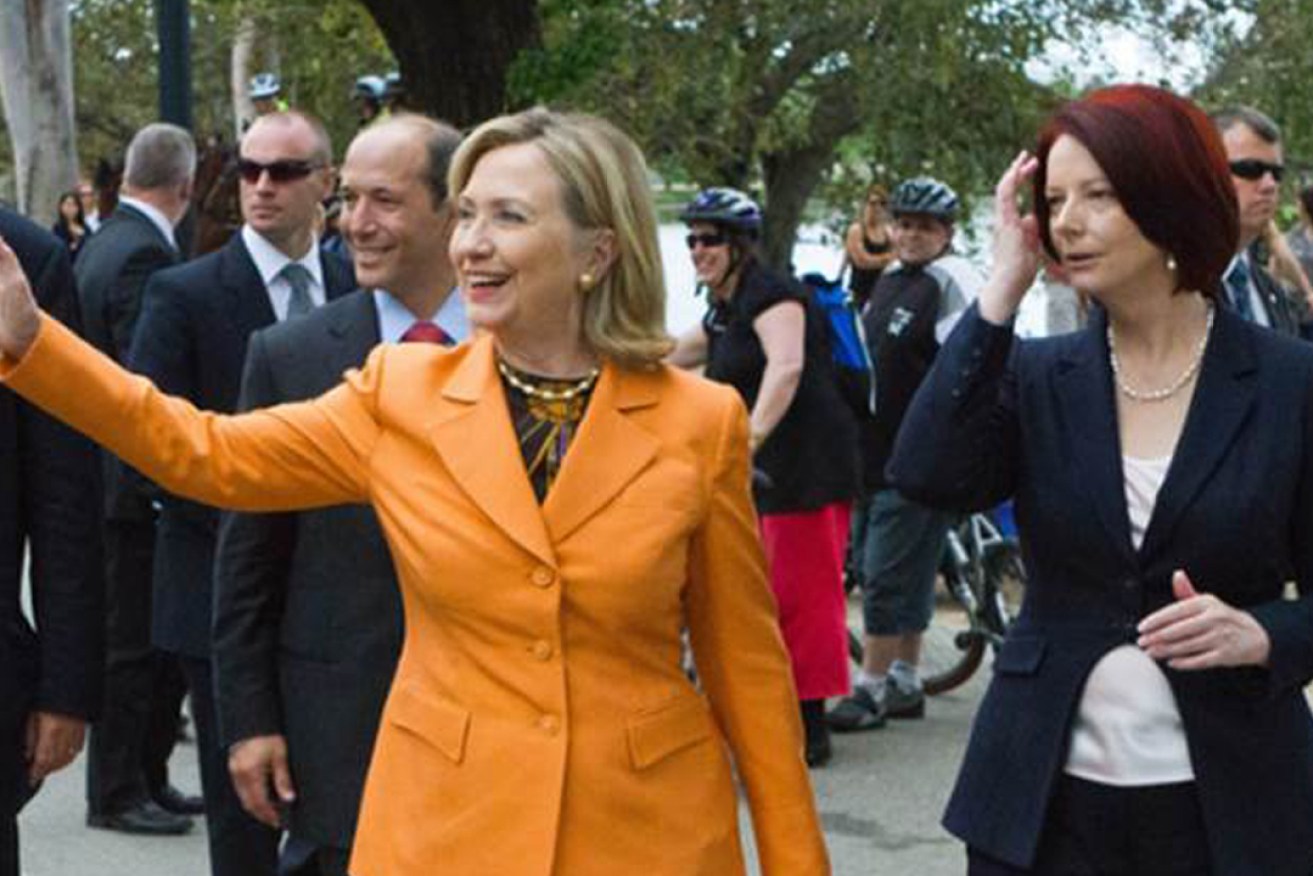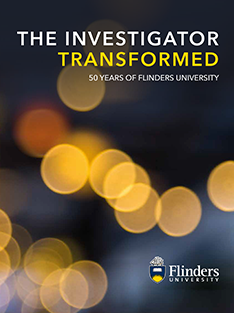
Democracy’s new challenge: runaway technology and walk-away government
The final lecture of the Adelaide Festival of Ideas, The Investigator, will see Jeffrey Bleich take to the stage to contemplate the unprecedented rate at which technology is advancing and the opportunities and challenges that this presents.

US presidential candidate Hillary Rodham Clinton waves to the crowd during her walk with Australian Prime Minister Julia Gillard, and former US Ambassador to Australia, Jeff Bleich, rear, during a visit to Melbourne on November 7, 2010.
Addressing this topical issue at the Flinders University free flagship lecture, Mr Bleich, the former US Ambassador to Australia, will delve into the world of emerging technologies. He will debate how technology will likely lead to much greater life spans, raise living standards in emerging nations and dramatically change how we travel, work, and consume resources.
But this transformation raises new challenges, such as jobs that will become superfluous and the effects that a population with prolonged existence will have on the work force and health care system.
For many in the next generation, technology is seen as the answer to most of society’s ills, and that any pain or disruptions it causes can be addressed through more and better technology. However, democracies, designed for predictable and deliberate change, are feeling overwhelmed by the rate of technological change, which has produced a public backlash in elections around the world. At just the moment when government is most needed to foster the right environment for innovation, to set market signals for the technologies we need most, and to address the unintended/negative effects of technology, many governments seem paralysed.
The result has been self-defeating actions like Brexit, the rise of demagogues in political elections, and declining confidence in government. These same effects occurred during the Gilded Age when our nations were simultaneously enriched and traumatised by the rapid advances of the industrial age. Reframing the public debate around technology and government is a critical step to restoring healthy democracy, and developing a government that is as nimble and effective as modern technology and society demand.
Guest Lecturer Biography
Jeff Bleich is the CEO of Dentons Diplomatic Solutions, an international consulting group composed of senior government executives, and a partner and member of the leadership team of Dentons, the world’s largest law firm. He previously served as the U.S. Ambassador to Australia from 2009 to 2013, and as Special Counsel to President Obama in the White House. In 2016 he was named one of the United States’ 500 most influential lawyers by the LawDragon 500.
Based in Silicon Valley, Ambassador Bleich specialises in resolving complex international disputes and advising institutions on cyber-security and technology issues. He serves as an advisor to the U.S. Government on cybersecurity matters, as well as serving as an advisor to California Governor Jerry Brown, and to Secretary Hillary Clinton.
The souvenir picture book, The Investigator Transformed, can be purchased via the Flinders 50th Anniversary website.





